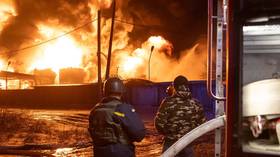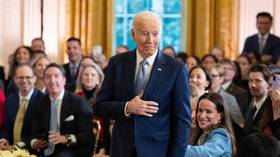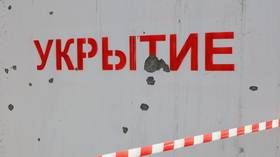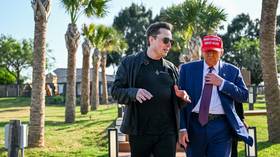Georgia’s opposition calls for parliament boycott
Georgia's United Opposition bloc says it will boycott the country's newly elected parliament and is calling on other parties that got over the 5 per cent threshold to do the same.
The move comes after opposition leaders declared Wednesday's parliamentary election rigged.
They plan a protest rally for May 26 which is Georgia’s Independence Day, and are calling on other opposition parties to join them.
Georgia’s pro-presidential United National Movement has won 120 of the 150 seats available in Wednesday's election. The United Opposition bloc came second with about 15 per cent and is expected to get 12 seats in the parliament.
But with the opposition refusing to take their places in Parliament, and with a large demonstration planned for Monday, it now appears to be a different kind of politics.
“Unfortunately in Georgia you cannot get into power through the elections. The only way to achieve this is if people gather here to protest against the regime,” opposition leader David Gamkrelidze says.
The opposition claims serious violations occurred throughout the election process. They say the government has enjoyed dominant media coverage, since the closure of Imedi, a leading opposition TV station.
On election day itself, they allege numerous instances of ballot stuffing, intimidation and rigged counting. Their own observers conducted an alternative count that saw the United Opposition bloc snatch first place from Mikhail Saakashvili’s ruling party.
Eliso Chapidze is a leading Georgian political journalist, whose assignment on voting day was to stand in as an observer.
She says that at one polling station she was threatened by pro-Saakashvili heavies, who broke her camera, as the police looked on. She says she witnessed grave violations.
“Some voters and Saakashvili party coordinators were in a pact. The voters were promised money or other incentives. When they received their ballots they didn’t go into the booth but filled them in, in front of party officials. Also, the names of those who refused to show their ballot paper were written down on a special list,” Chapidze said.
Georgy Tckheidze heads the Young Lawyers Association, a legal watchdog that’s won plaudits for its impartiality from both the opposition and the ruling party.
He says his team witnessed individual violations, but he could not say whether they were serious enough to affect the outcome. He believes only the Central Election Commission can resolve the disagreement.
“It’s all in their hands. They need to handle their complaints properly, otherwise they might face the same problem as in the Presidential election,” Tchkheidze said.
Following January’s narrow loss the opposition staged rallies that attracted tens of thousands of people, but the result of the election was not reviewed.











